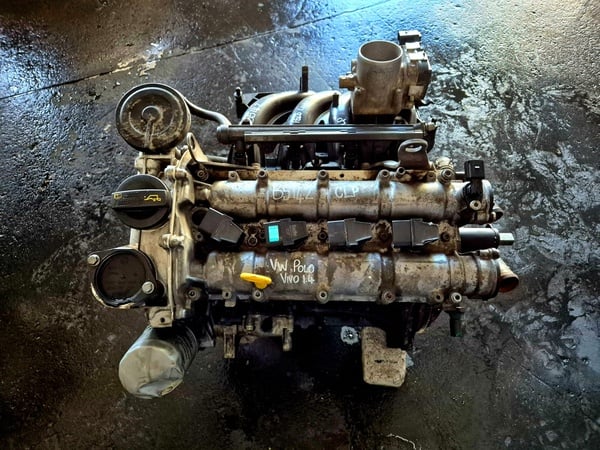Just How a Clp Engine Can Improve Effectiveness in Various Industries
The introduction of CLP engines marks a significant change in functional effectiveness throughout numerous industries, driven by their capacity to enhance gas usage and lessen downtime. As organizations increasingly prioritize sustainability alongside performance, the role of CLP engines comes to be even a lot more vital.
Summary of CLP Engines
CLP engines, or Continual Fluid Propellant engines, represent a substantial innovation in propulsion modern technology, particularly for room applications. These engines use a continual feed system that allows for the continual expulsion of propellant, bring about enhanced efficiency and efficiency contrasted to traditional strong or hybrid propulsion systems. By maintaining a continuous circulation of fluid propellant, CLP engines can achieve much more accurate thrust control, which is critical for maneuvering spacecraft in numerous goal circumstances.
The style of CLP engines incorporates innovative materials and innovative gas administration systems. clp engine. This causes minimized weight and raised dependability, important aspects for long-duration area objectives. Additionally, the continuous procedure minimizes the threat of combustion instability, a common challenge in conventional rocket engines.

Benefits in Production
The production of Continual Fluid Propellant (CLP) engines presents numerous noteworthy advantages that improve both effectiveness and cost-effectiveness. Among the primary benefits is the structured manufacturing procedure, which lowers the complexity related to typical propulsion systems. By utilizing fluid propellant, producers can achieve higher accuracy in engine performance, causing enhanced energy output and reduced waste.
In addition, CLP engines assist in a greater degree of modularity, enabling for less complicated assimilation right into different manufacturing lines. This adaptability can substantially reduce lead times and boost overall functional flexibility. Using CLP modern technology likewise has a tendency to lessen the need for substantial maintenance because of fewer moving components, which equates into decreased downtime and functional costs.

Applications in Logistics
Leveraging Continual Fluid Propellant (CLP) engines in logistics offers significant advantages in functional efficiency and reliability. These engines supply a robust option for numerous transport needs, enabling the smooth motion of items throughout substantial ranges. The inherent design of CLP engines permits constant power result, which equates into smoother and extra predictable transport routines.
Among the key applications of CLP engines in logistics remains in sturdy products transportation, where they can drive both ground and aerial automobiles. Their capability to maintain high efficiency under varying click here for more lots problems makes sure that delivery timelines are satisfied, thereby improving client complete satisfaction. Additionally, CLP engines can be integrated into automated logistics systems, helping with real-time tracking and optimizing course preparation.
Moreover, the toughness of CLP engines reduces maintenance downtime, enabling logistics business to optimize their operational capabilities. This is particularly advantageous in warehousing operations, where performance in handling and delivering products is vital. As logistics proceeds to advance, the combination of CLP engines stands site for a forward-thinking method that not only enhances performance yet likewise sustains the market's growing demands for reliability and rate.
Effect On Power Effectiveness
Exactly How do Continuous Liquid Propellant (CLP) engines enhance power performance in transport? CLP engines utilize a consistent circulation of fluid gas, enhancing burning processes and keeping a steady thrust outcome. This layout decreases power losses connected with standard burning engines, where gas shipment can differ and cause ineffectiveness.
The continual operation of CLP engines permits an extra effective thermal cycle, leading to higher certain impulse compared to traditional engines. clp engine. This translates to minimized fuel intake for the very same amount of work done, considerably decreasing operational costs throughout various transportation industries, including air travel and maritime markets
Additionally, the capacity of CLP engines to preserve ideal efficiency under differing load conditions reduces the requirement for constant velocity and deceleration, even more enhancing gas performance. Improved energy performance not just adds to set you back financial savings but also leads to decrease greenhouse gas emissions, straightening with global sustainability objectives.
Future Trends and Innovations
Emerging developments in Constant Fluid Propellant (CLP) engine technology promise to transform the landscape of transport effectiveness and sustainability. As sectors pivot toward greener choices, CLP engines stand at the center, incorporating innovative materials and style methodologies that enhance performance while reducing environmental impact.
One of the most appealing trends is the adoption of hybrid systems that incorporate CLP engines with renewable resource sources. This harmony can optimize fuel usage and lower exhausts, aligning with international sustainability objectives. Furthermore, advancements in computational fluid characteristics More Help (CFD) are helping with the design of even more aerodynamically effective engines, leading to minimized drag and enhanced fuel performance.
In addition, the growth of clever surveillance systems is set to enhance functional effectiveness. These systems leverage data analytics and IoT innovation to enhance engine efficiency in real-time, making certain that the engines operate within their most reliable specifications.
As research proceeds to check out different propellant solutions-- such as biofuels and artificial fuels-- the future of CLP engines looks promising. By using these advancements, markets can not just boost their efficiency however likewise contribute considerably to a cleaner, much more lasting future in transportation.
Verdict
In verdict, CLP engines stand for a significant development in performance across numerous industries. The assimilation of sophisticated materials and fewer relocating parts minimizes upkeep needs, while alignment with sustainability goals placements CLP engines as an essential innovation for the future.